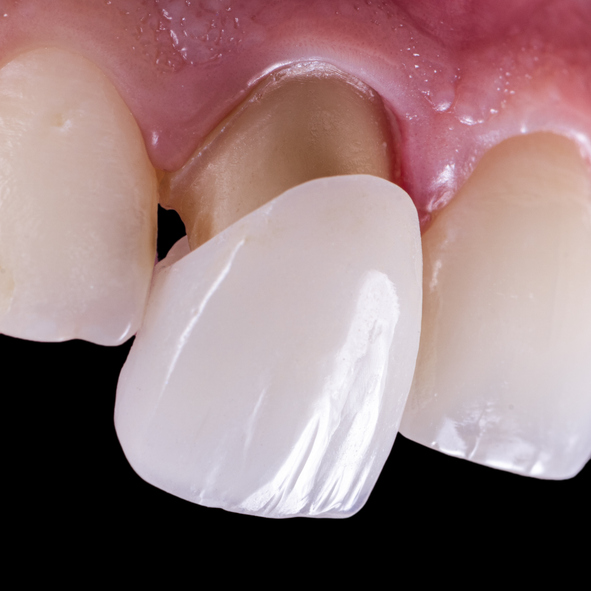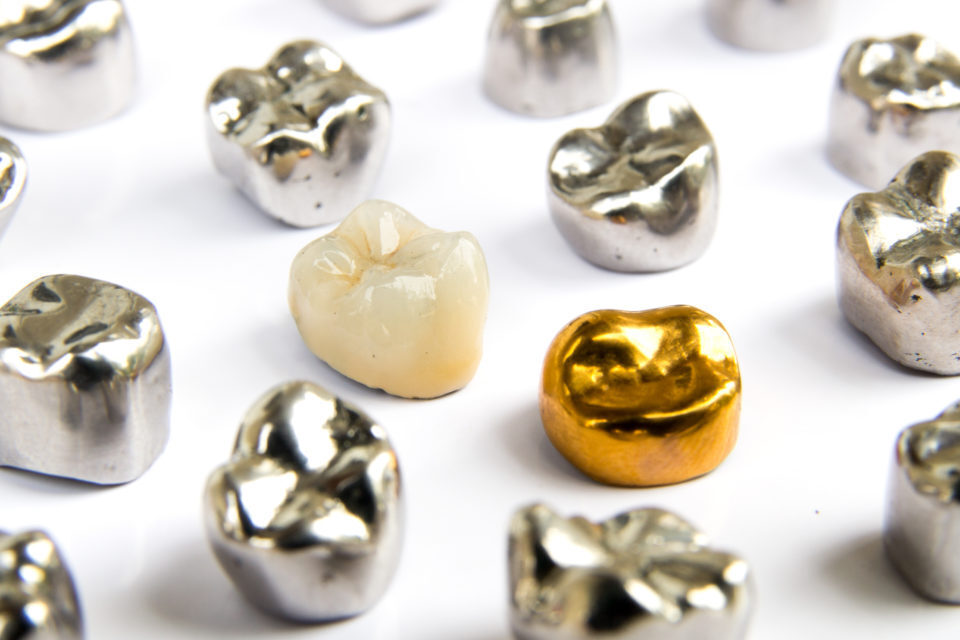


A tooth cap or dental crown completely covers a tooth, offering vital protection and support. Dentists frequently suggest crowns to address issues such as decay, damage,, or wear on teeth. With appropriate maintenance, Crowns can have a lifespan ranging from five to fifteen years.
Many materials can be used to make a dental crown, and they can be placed on damaged teeth.
A dental crown is a tooth-shaped cap. Crowns are designed to encase the entire tooth, much like a well-fitted cap. To achieve an accurate fit, dentists will carefully trim a thin layer of enamel before securely attaching the new crown. Dental technicians create crowns using diverse materials, such as resin, metal, and porcelain.

There are various types of tooth caps available. The right choice for you will depend on your individual preferences and specific oral health requirements.
Dental technicians utilize various metals, such as gold, palladium, nickel, and chromium, to fabricate dental crowns. These metal crowns are known for their durability, as they rarely chip or break and have an impressive lifespan. Additionally, the application of metal crowns requires minimal enamel removal and they effectively endure the forces involved in biting and chewing.
Porcelain-fused-to-metal (PFM) crowns blend the strength of metal with the aesthetic appeal of porcelain. These crowns can be customized to match the color of your natural teeth, providing a seamless and attractive result.
A pressed ceramic crown features a robust inner core constructed from ceramic, distinguishing it from the metal core of a PFM crown. Technicians create this core by melting and shaping ceramic in a high-temperature oven, ensuring durability. Following this, they apply several layers of porcelain to enhance aesthetics. Much like all-porcelain crowns, pressed ceramic crowns effectively replicate the translucency and appearance of natural tooth enamel.
No other type of crown more closely resembles the way your natural teeth look than porcelain or ceramic crowns. They are also an excellent option for individuals with metal allergies.
Many dentists now utilize CAD/CAM (computer-aided design and manufacturing) technology) to produce crowns right in their offices, often while you wait. This innovative software enables dentists to capture digital impressions of your teeth, which they then use to design a personalized crown. After the design process, the dentist sends the image files to an on-site milling machine where a block of ceramic is used to fabricates the new cap.
Resin dental crowns are typically less costly than other crown options. However, they tend to be more fragile and have a higher likelihood of breaking compared to porcelain-fused-to-metal (PFM) crowns.